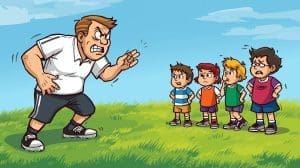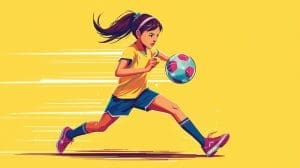
Sports Psychology Case Study – Supporting a Professional Rugby Player Rehabilitating from Injury
Emotional support at this time is a huge benefit
The Client:
A 20 year old very competitive, professional rugby player (for the purpose of this article, we’ll call him Jack) based in North West England who had been involved in the sport since he was 13 years old.
The Challenge:
I was advised by Jack’s coach that he had suffered a serious ankle injury in a recent match and that his future as a rugby player was in doubt. Jack was, according to the coach, very upset about the situation and the club wanted to support him the best they could. Jack had dreams of playing international professional rugby and had been making solid progress in this pursuit prior to the injury which had taken place around 8 weeks prior to our first meeting. Jack confirmed that this had been his first serious injury and that he was devasted that his season had been shortened. He added that he was trying to remain positive however it was difficult as his mood was very up and down.
The Objectives:
When we discussed possible goals from our work together, Jack was keen to have someone to talk to so that he could come to terms with the injury and assist in the rehabilitation. He admitted that although he had a good support team around him, it was a lonely place being an injured player in a team sport. He also knew that the physical training involved in his recovery would challenge him.
The Process:
We met regularly for 9 months, either in person, via zoom video conferencing or on a golf course, totalling approximately 30 hours of support.
The sessions included a detailed needs analysis where we discussed his rugby background, other sporting and academic interests, the challenges he faced, his lifestyle, his support system, future goals and mental health challenges because of the situation he was in.
The use of counselling skills was essential as is highlighted below:
- I provided listening support for Jack so that he could talk openly about the circumstances surrounding the injury and future implications.
- Emotional support was a feature of our work where he expressed his feelings and emotions, including frustration, anger, despair and sadness.
- We discussed potential emotional challenges so that Jack could prepare himself for possible obstacles that he may come across in the medium to long term.
- Self Determination Theory and the three fundamental needs; autonomy, relatedness and competence which are influential for psychological well-being and growth formed the foundations of some of our work where Jack openly discussed areas of his life and rehabilitation in connection with these needs.
- Short and medium-term performance and process goals were a feature of our work to help his focus and motivation levels.
- I used principles associated with Cognitive Behavioural Therapy (CBT) to bring about cognitive change and challenge some of Jack’s beliefs.
- Jack took to the daily use of a mindfulness body scan which helped him tune into his body, noticing any sensations that he was feeling without judgement. This helped him remain more present and relaxed.
- As he returned to training and playing matches we used imagery a lot. I recorded a number of audio’s so that he could develop the skill and improve the vividness and controllability of images that he produced. The audio’s included segments where he could see himself playing at his best, being dominant in tackles, scoring tries, making breaks, recovering from mistakes, communicating with his team-mates, dealing with pain, intimidating opponents with his skills and more.
The Outcomes:
- Jack naturally had ups and downs during the 9 month period though found the safe, private and relaxed sessions away from his club set up invaluable.
- He began his coaching qualifications during the course of our programme.
- He got involved with coaching a junior rugby team.
- Jack looked at career options away from rugby and was considering doing a business marketing degree whilst playing professionally.
- Boxing helped him find a useful outlet for his anger.
- He enjoyed using the visualisation exercises and found them hugely helpful with his return to training and playing.
The Conclusion
- Jack’s mental health was impacted by the serious injury however the pro-active support helped him channel his anger at events more positively.
- His adherence and focus towards his rehabilitation was very high despite emotional difficulties and setbacks along the way.
- He satisfied the basic psychological needs for competence in the way that he applied himself to his rehabilitation and coaching qualifications.
- By taking up boxing, starting his coaching qualifications and doing research into the business marketing degree he showed that he wanted to take control of the situation with a “can do” attitude as opposed to letting the injury make him feel helpless.
- Stepping forth and getting involved in some coaching was a good distraction and helped Jack feel more connected to people.
- On returning to playing again he found that he was quickly back up to speed with the help of the visualisation exercises.
If you’re enjoying reading my sports psychology blogs, please do forward them on to other coaches, parents or athletes who would appreciate them or why not sign up to the Mental Edge for regular tips.
You can also join our online community – THE SPORTS PSYCHOLOGY HUB – for regular Sports Psychology tips, podcasts, motivation and support.

Best Wishes
David Charlton
Global Sports Psychologist who is located near Newcastle Upon Tyne, UK and willing to travel Internationally. David also uses online video conferencing software (Zoom, Facetime, WhatsApp) on a regular basis and has clients who he has supported in USA, Canada, South America, UAE, Australian and New Zealand.
Managing Director – Inspiring Sporting Excellence and Founder of The Sports Psychology Hub. With over 10 years experience supporting athletes, coaches, parents and teams to achieve their goals, quickly.







